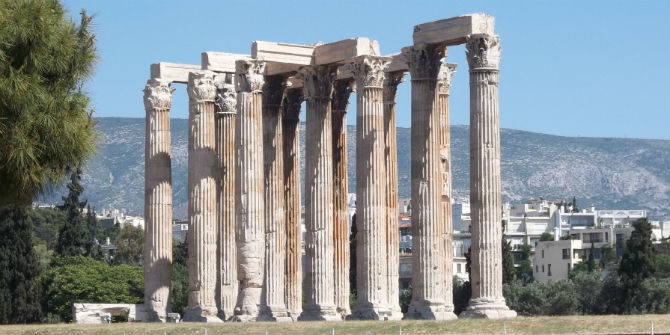 Ewan Sutherland takes an in-depth look at the Scottish Trades Union Congress’s proposal for Scottish broadcasting to be devolved, considering the regulatory implications and the likelihood that this might go ahead.
Ewan Sutherland takes an in-depth look at the Scottish Trades Union Congress’s proposal for Scottish broadcasting to be devolved, considering the regulatory implications and the likelihood that this might go ahead.
The Scottish Trades Union Congress (STUC) has proposed to the Smith Commission that broadcasting be devolved, with item 7.6 of its statement reading: “The Scottish Parliament to be given formal regulatory power over broadcasting in Scotland. It is particularly important that the public service broadcasters are accountable to, and are seen to be accountable to, the Scottish Parliament.”
However, Westminster does not have regulatory powers over broadcasting, merely oversight of the independent regulators, within the framework of applicable European Union treaties and directives, plus EU-wide networks of regulators. The BBC operates under its own Royal Charter and agreements with the government, regulated by the BBC Trust.
In justification, the STUC alleges a series of failings on the part of broadcasters:
- To provide sufficient quality employment opportunities;
- To strengthen and sustain Scotland’s democracy and culture; and
- To invest.
The challenge to Lord Smith is, in short order, to determine if broadcasting might be devolved and whether a simple, workable solution is available.
What might be devolved?
John Curtice has written that opinion is evenly divided (43% in favour, 45% opposed) on devolution of responsibility for broadcasting and the BBC. He also noted that What Scotland Thinks found 54% wanted devolution of broadcasting policy, while 30% were opposed.
Devolution of broadcasting could include the powers of:
- Department for Culture, Media & Sport (DCMS);
- The following parliamentary committees:
- Culture, Media and Sport Committee of the House of Commons,
- Communications Committee of the House of Lords, and
- Public Accounts Committee;
- Office of Communications (Ofcom):
- Content Board, and
- Advertising Standard Authority (ASA);
- BBC and BBC Trust;
- Authority for Television on Demand (ATVOD);
- Television Licence Authority and Fee; or
- All of the above.
A central question is the scope of ‘broadcasting’ and whether it can be distinguished from printed and other electronic media, either now or in the medium term. An obvious danger is of regulatory arbitrage, of content being directed to one medium rather than another or to one jurisdiction rather than another, in order to benefit from more favourable regulation.
Devolution of regulation would split the single United Kingdom broadcasting market, incurring costs that need to be calculated and weighed against any benefits. The existing licences (e.g., STV and West Sound) could only be changed after public consultations and, probably, litigation. Changing the licences for Border TV and for satellite services (e.g., Sky) would be more complex, since they also serve other nations of the United Kingdom.
Broadcasters would continue to require spectrum, which could be allocated by Ofcom or the powers devolved and a further series of EU directives transposed in Scotland. An independent spectrum regulator would need to be created, which would then have to work with DCMS and Ofcom and, through them, with a range of international bodies (e.g., RSC, RSPG, CEPT and ITU-R).
A further decision would concern delegating powers over advertising to the ASA, as Ofcom does, in order to retain the United Kingdom single market for advertising.
European Union regulatory framework
Devolution of broadcasting regulation, effectively the powers of OFCOM, its Content Board and those delegated to the ASA, the BBC Trust and ATVOD, would require a Scottish transposition of the Audio-Visual Media Services Directive (2010/13/EU) and the creation of a new Scottish regulator, independent from the Scottish Government, but under the oversight of the Scottish Parliament (see, for example, the report of the High Level Group on Media Freedom and Pluralism). The regulatory body would be required to participate, with Ofcom, in the European Regulators Group for Audiovisual Media Services.
The legislation would be required to be kept aligned with any changes in EU directives, which would require an enforcement mechanism.
A Scottish broadcaster
Given the evident dislike of the STUC for the private sector, a simpler option would be to split the BBC at the border when its Royal Charter is next renewed. In this way the staff and assets in Scotland and the licence fees (perhaps at a different level) could go to a new body, under a new Royal Charter, accountable to, but independent from, either Westminster or the Scottish Parliament. This would avoid changing the existing legal framework, with the exception of the provisions for the Television Licensing Authority, the Royal Charter and spectrum licences from OFCOM.
Aside from the disruption of creating a new broadcaster, it would lose all access to BBC content, since households in Scotland would no longer be paying towards its costs. It is impossible to say how much of the BBC content it could afford or might wish to buy, which requires an estimated budget of the production and distribution costs and a price list from London and Salford.
An administrative alternative
The historic approach was to appoint a “Scottish” governor to the BBC and similarly to the Ofcom Content Board, though without any accountability or transparency. Such arrangements may have been acceptable in the 1950s, but are wholly unsuited to a more democratic, litigious and transparent century.
There were also proposals to have Ofcom report to the three devolved legislatures. However, it is unreasonable and irrational to expect a regulatory authority to reconcile conflicting political directions from four (or more) legislatures, especially since any decision would be subject to an appeal.
The Scottish Greens offered a vague suggestion of joint oversight by the various legislatures. However, such a body could not adopt a new policy, whereas a new Joint Ministerial Committee – Regulation (JMC-R) could do so, with ministers being accountable for such directions to their respective parliaments. The JMC could also coordinate positions being taken at the EU Council of Ministers. Both proposals face the problem of the asymmetry of the nations of the United Kingdom, it being very difficult to see how voting might be contrived other than to create veto powers that might forever stymie change.
Outlook
In general the STUC proposals for devolution seem likely to infringe international treaty obligations to the Council of Europe, European Union and World Trade Organisation, plus quite a few EU directives. It might find these eased by leaving the European Union (e.g., evading the procurement directives 2004/17/EU and 2004/18/EU).
The proposal to devolve broadcasting regulation to the Scottish Parliament is clearly a mistake, either in expression or in a failure to understand how regulation works. As a member of the European Union, a strong obligation exists that any regulatory authority be independent, as should any broadcaster.
Devolving broadcasting alone, without spectrum or Internet access, would be asking for trouble, as it would open the way to evade regulations. In an age of the iPlayer, Netflix and Spotify, it is essential that a broad and consistent view be taken of content regulation.
Consequently, the measure that seems to answer the requirements of the STUC would be to devolve the licence fee and to split the BBC. However, it would be essential to perform budget simulations to outline the likely output of a new Scottish broadcaster. Equally, it would be essential to obtain the views of consumers as to whether they wanted this, since they may prefer to forego both the BBC and the licence fee. It is very unlikely this could be done during the course of November or even over the ‘festive season’ in time for the draft legislation. Rather than being ‘kicked into the long grass,’ the issue could be transferred into the negotiations over the BBC Licence Fee, due to start very soon, but requires considerable work.
For a longer analysis of Internet and telecommunications issues under devolution see this note, while for the issues under independence see this article. This blog post gives the views of the author, and does not represent the position of the LSE Media Policy Project blog, nor of the London School of Economics.





